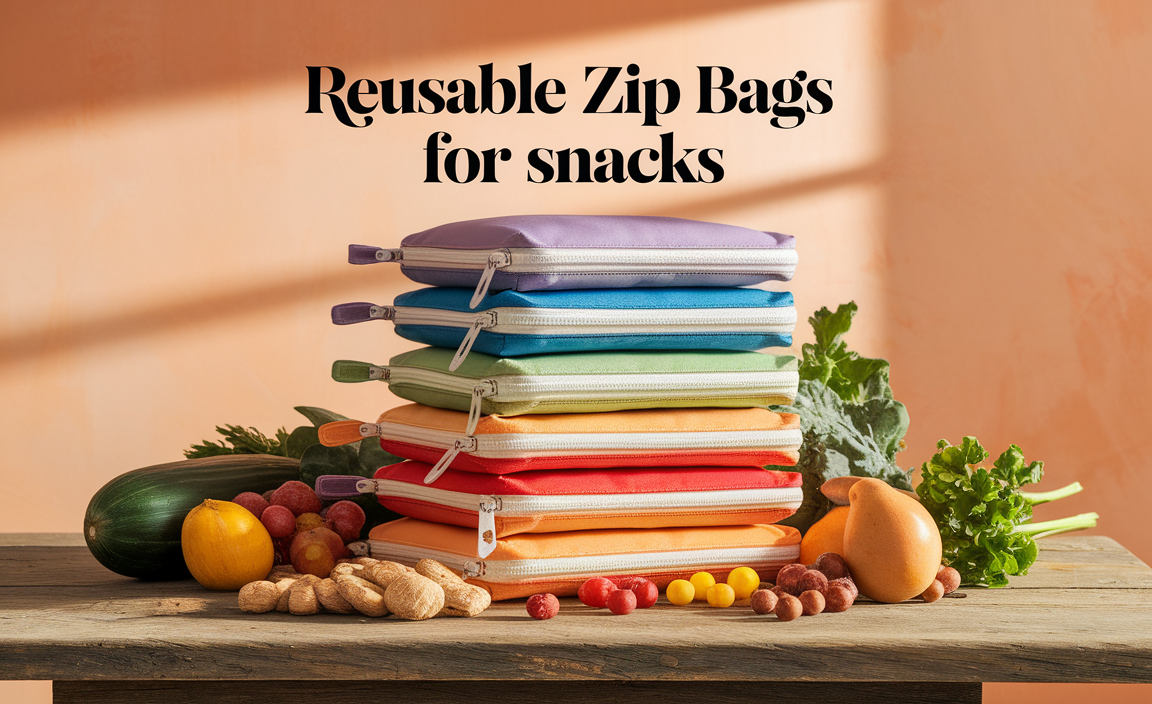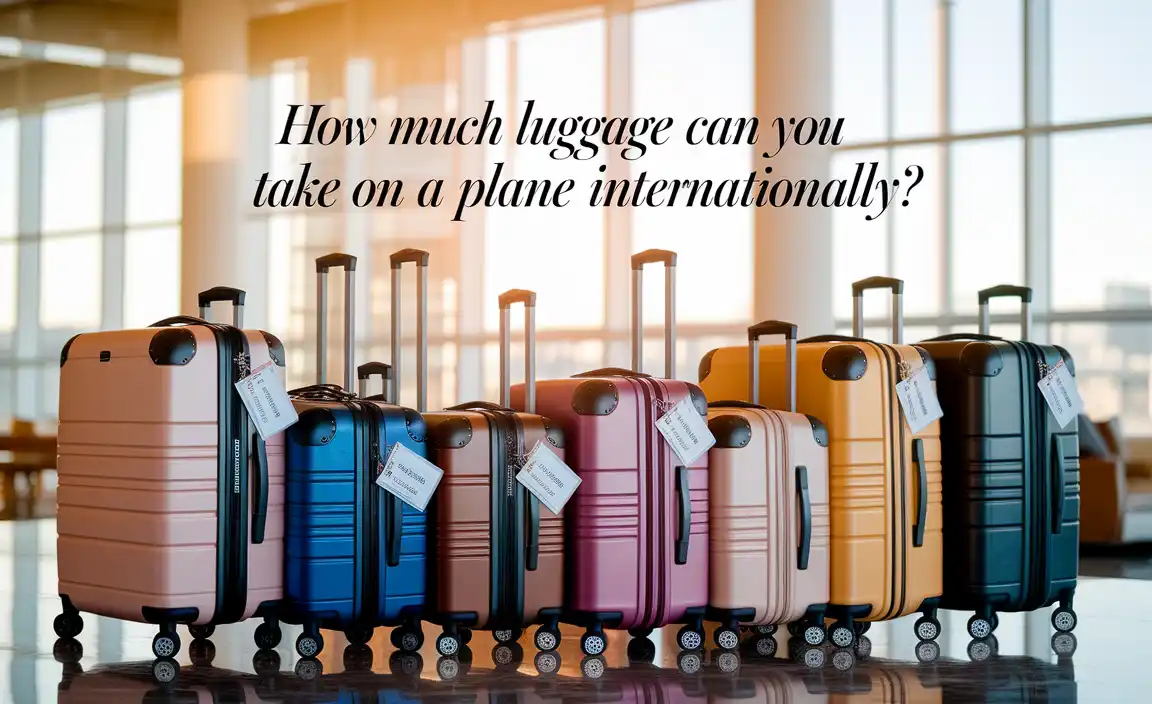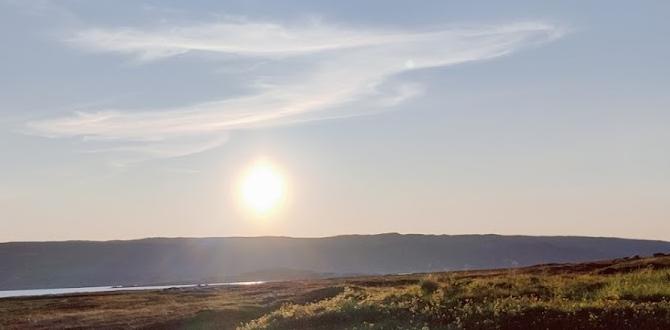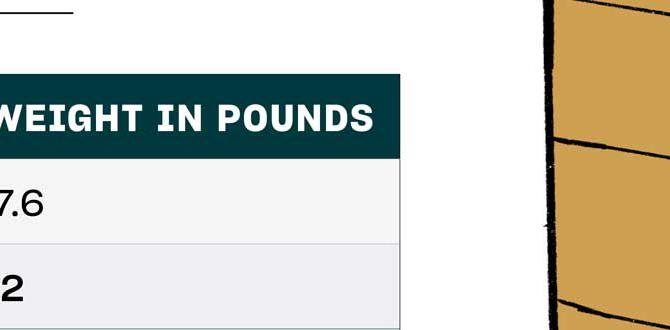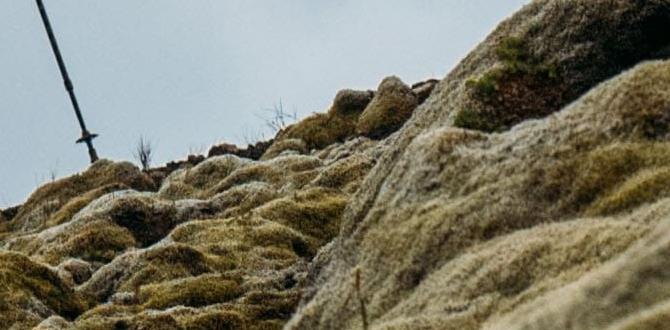Algeria budget travel is achievable with smart planning! This guide offers essential tips for affordable exploration, covering transport, accommodation, food, and activities to help you experience Algeria’s rich culture and stunning landscapes without breaking the bank.
Planning a trip to Algeria on a budget might seem daunting, but it’s more accessible than you think! Many travelers worry about the costs associated with visiting a country rich in history and natural beauty. You want to see the ancient Roman ruins, wander through vibrant souks, and marvel at the vast Sahara, but your wallet feels a little thin. That’s completely understandable! The good news is, with the right approach and a few insider tips, you can create an unforgettable Algerian adventure that’s both enriching and affordable. We’ll guide you through every step, from finding budget-friendly stays to enjoying delicious local food without the hefty price tag. Get ready to discover the magic of Algeria!
Your Algeria Budget Travel Guide: Essential Tips for Affordable Exploration
Algeria, the largest country in Africa, is a treasure trove of diverse landscapes, from the Mediterranean coast to the Sahara Desert, and a rich tapestry of history and culture. While it might not be as frequently featured on the budget travel circuit as some other destinations, it offers incredible value for money if you know where to look. This guide is designed to help you navigate Algeria affordably, ensuring your journey is comfortable, memorable, and kind to your wallet. We’ll cover everything you need to know to travel smart, from getting around to eating well and finding charming places to rest your head.
1. Plan Your Visit: Timing is Everything
The time of year you visit Algeria can significantly impact your budget. Generally, traveling during the shoulder seasons (spring and autumn) offers a sweet spot for lower prices on flights and accommodation, coupled with pleasant weather.
- Spring (March to May): This is a fantastic time to visit. Temperatures are mild, wildflowers are blooming in the north, and the desert can be explored comfortably. Prices are typically mid-range.
- Autumn (September to November): Similar to spring, autumn brings comfortable temperatures, making it ideal for exploring cities and the desert. It’s another great shoulder season for budget travelers.
- Summer (June to August): This is peak season, especially along the coast, and prices can be higher. The desert can be extremely hot, making daytime exploration challenging.
- Winter (December to February): You might find the lowest prices during winter, especially in the north where it can be cooler and even rainy. The desert, however, offers pleasant daytime temperatures, though nights can be very cold.
2. Smart Flight Booking for Algeria
Flights are often the biggest part of a travel budget, so strategic booking is key.
- Be Flexible with Dates: If your travel dates are flexible, use flight comparison websites to see which days offer the cheapest fares. Often, flying mid-week is more affordable.
- Consider Nearby Airports: While most international flights arrive at Algiers (ALG), sometimes flying into a slightly different route or with a layover can save money.
- Book in Advance: Aim to book your international flights at least 2-3 months in advance for the best deals.
- Airline Loyalty Programs: If you’re part of any airline loyalty programs, check if you can use points or miles for your flight to Algeria.
- Set Fare Alerts: Many flight booking sites allow you to set up alerts for price drops on routes you’re interested in.
3. Navigating Algeria: Affordable Transportation Options
Getting around Algeria can be an adventure in itself. Opting for public transport is a budget traveler’s best friend.
Trains: Scenic and Economical
Algeria has a decent railway network, managed by the Société Nationale des Transports Ferroviaires (SNTF). Trains are generally comfortable and a very cost-effective way to travel between major cities in the north.
- Routes: The main lines connect Algiers to Oran, Constantine, Annaba, and other significant cities.
- Classes: There are usually first and second-class carriages. Second class is perfectly adequate for most travelers and is the most budget-friendly.
- Booking: Tickets can be purchased at train stations. It’s advisable to book a day or two in advance, especially for longer journeys or popular routes.
- Pros: Affordable, scenic views, avoids road traffic, generally safe.
- Cons: Network is limited to the northern regions, schedules can sometimes be delayed.
Buses: Extensive Reach
For destinations not served by train, or for more direct routes, intercity buses are an excellent option. Companies like Compagnie de Transport Routier de Voyageurs (Cotrav) operate extensive networks.
- Coverage: Buses reach almost every corner of the country, including gateway towns to the Sahara like Tamanrasset and Ghardaïa.
- Comfort: Modern buses are often comfortable, with air conditioning. Overnight buses are common for long distances, saving on accommodation costs.
- Booking: Tickets are bought at bus stations. For popular routes, especially overnight ones, booking a day ahead is wise.
- Pros: Extensive network, often more frequent than trains, good for reaching remote areas, overnight options save on lodging.
- Cons: Can be less comfortable than trains on very long journeys, road conditions can sometimes be rough.
Shared Taxis (Grand Taxis): A Local Experience
Shared taxis, known as “grand taxis,” are a quintessential Algerian travel experience. These are usually sedans or minivans that depart from designated taxi stations (usually near bus or train stations) once they fill up with passengers heading in the same direction.
- Destinations: They fill gaps between bus/train services and are common for shorter inter-city or even inter-village trips.
- Pricing: The price per person is fixed and often comparable to bus or second-class train tickets. You can pay extra to have the whole taxi to yourself for a faster, private journey, but this is obviously less budget-friendly.
- Pros: Faster than buses, more flexible departure times (when full), authentic local interaction.
- Cons: Can be cramped, departure time depends on filling up, less comfortable for long-haul.
Domestic Flights: For Speed, Not Savings
Algeria’s national airline, Air Algérie, operates domestic flights. While convenient for covering vast distances quickly (e.g., Algiers to Tamanrasset), they are generally the most expensive mode of transport and not ideal for budget travelers unless a significant discount is found.
4. Budget-Friendly Accommodation in Algeria
Finding affordable places to stay is easier if you know what to look for.
Hotels: Exploring Mid-Range and Budget Options
While luxury hotels exist, Algeria has a good selection of mid-range and budget hotels, particularly in larger cities. Look for hotels that are slightly outside the absolute city center but still accessible by public transport.
- Booking Platforms: Use international booking websites, but also check local Algerian hotel aggregators if available.
- Read Reviews: Pay close attention to reviews regarding cleanliness, safety, and noise.
- Amenities: Many budget hotels include basic breakfast, which can save you money and time.
Guesthouses and Auberges: Charming and Affordable
In more historic areas or smaller towns, you might find charming guesthouses or “auberges.” These often offer a more personal touch and can be very reasonably priced.
- Medina Stays: In cities like Algiers or Constantine, look for accommodation within the traditional medina (old city) for an authentic experience and often better value.
- Local Recommendations: Ask locals or your guesthouse hosts for recommendations for other budget-friendly places to stay.
Sahara Experiences: Camping and Basic Lodges
When venturing into the Sahara, your accommodation options will differ. Budget travelers often opt for:
- Desert Camps: Many tour operators offer overnight stays in desert camps. These range from very basic, traditional setups to more comfortable glamping-style tents. The more basic, the cheaper. Negotiate prices if you’re booking locally.
- Basic Lodges: In oasis towns like Ghardaïa or Timimoun, there are often simple, family-run lodges that offer affordable rooms.
Hostels: A Growing Trend
While not as widespread as in Europe, hostels are beginning to appear in major tourist hubs like Algiers and Oran. These are excellent for solo travelers or those looking for the absolute cheapest option and a chance to meet other travelers.
5. Eating Smart: Delicious and Affordable Algerian Cuisine
Algerian food is flavorful and diverse, and you can eat very well on a budget!
Street Food and Local Eateries
This is where the real culinary magic happens for budget travelers.
- Kofta and Merguez Sandwiches: Look for street vendors selling delicious grilled kofta (meatballs) or spicy merguez (sausage) in bread. These make for cheap and filling meals.
- Boulangeries: Bakeries are everywhere and offer a fantastic array of savory and sweet pastries, often filled with cheese, vegetables, or meat, perfect for a quick breakfast or lunch.
- Local Cafés: Small, local cafés are great for enjoying a strong Algerian coffee or tea and often serve simple, cheap dishes like omelets or basic stews.
Markets: Fresh Produce and Local Snacks
Visiting local markets (souks) is not only a cultural experience but also a great way to find affordable food.
- Fresh Fruits and Vegetables: Stock up on fresh, seasonal fruits for snacks.
- Local Delicacies: You can often find vendors selling traditional snacks, olives, dates, and nuts at local prices.
Traditional Dishes to Try on a Budget
Many Algerian staples are inherently affordable and hearty.
- Couscous: While many restaurants offer elaborate couscous dishes, you can often find simpler, vegetable-heavy versions in local eateries that are very budget-friendly.
- Tajine: Similar to couscous, simple tajines (stews) made with local vegetables and a smaller portion of meat can be a cost-effective and delicious option.
- Chorba: This hearty lentil or chicken soup is a national staple and incredibly cheap and filling, especially in colder months.
Table: Estimated Daily Food Budget per Person (in USD, subject to change)
| Meal Type | Budget Eateries/Street Food | Mid-Range Restaurants |
|---|---|---|
| Breakfast | $2 – $4 (Bakery item + coffee) | $4 – $7 (Hotel breakfast or cafe) |
| Lunch | $4 – $7 (Sandwich, soup, market snacks) | $8 – $15 (Simple restaurant meal) |
| Dinner | $6 – $10 (Local eatery, couscous/tajine) | $12 – $20 (Standard restaurant meal) |
| Total Daily Estimate | $12 – $21 | $24 – $42 |
Note: This table provides estimates. Prices can vary greatly by region and specific establishment. Always ask for prices before ordering if unsure.
6. Affordable Sightseeing and Activities
Algeria offers incredible natural and historical wonders that don’t always come with a high price tag.
Explore Ancient Ruins and Historical Sites
Algeria is home to some of the most impressive Roman ruins in North Africa, including:
- Timgad: A UNESCO World Heritage site, this incredibly well-preserved Roman city is a must-visit. Entrance fees are modest.
- Djémila: Another UNESCO gem, perched on a hillside, offering stunning vistas alongside remarkable Roman architecture.
- Tipasa: Coastal Roman ruins with beautiful sea views, easily accessible from Algiers.
Many historical sites have relatively low entrance fees, making them accessible for budget travelers. Look for combination tickets if available.
Wander Through Cities and Markets
Simply exploring the vibrant cities is an activity in itself. Wander through:
- Algiers’ Casbah: A UNESCO World Heritage site, this labyrinthine old city is free to explore and offers endless fascinating sights, sounds, and smells. Getting lost here is part of the experience!
- Constantine’s Bridges: Admire the dramatic suspension bridges spanning gorges, offering breathtaking views.
- Oran’s Corniche: Enjoy a stroll along the waterfront.
- Local Souks: Immerse yourself in the hustle and bustle of local markets. While buying souvenirs can add up, browsing is free and an essential cultural experience.
Discover Natural Wonders (with Budget in Mind)
The natural beauty of Algeria is vast.
- Sahara Desert Tours: While multi-day luxury tours can be expensive, you can find more budget-friendly options by organizing tours locally in gateway towns like Tamanrasset or Ghardaïa. Negotiate prices for shorter trips or basic camping experiences. Consider group tours to split costs. More information on responsible desert tourism can be found through organizations like the UNESCO World Heritage Centre.
- Beaches: Along the Mediterranean coast, many beaches are free to access, offering a refreshing escape during warmer months.
Hike and Explore
The varied landscapes offer opportunities for hiking. While organized treks can be costly, exploring national parks or coastal trails independently (with proper safety precautions) can be a rewarding and free activity.
7. Managing Your Money: Currency and Costs
Understanding Algerian currency and common costs will help you stay on budget.
- Currency: The official currency is the Algerian Dinar (DZD). It’s an inconvertible currency, meaning you can only obtain it within Algeria.
- Exchanging Money: Exchange your currency at official banks or exchange bureaus at airports or in major cities. Avoid unofficial exchanges. ATMs are available in most cities and towns, but carrying some cash for smaller purchases and remote areas is wise.
- Bargaining: Bargaining is common in markets and for souvenirs. For taxis, agree on a price before you start your journey. In restaurants and hotels, prices are usually fixed.
- Tipping: Tipping is appreciated but not as formalized as in Western countries. Rounding up the bill or leaving a small amount (5-10%) for good service in restaurants and for guides is customary.
8. Staying Connected on a Budget
Keeping in touch doesn’t have to drain your funds.
- Local SIM Card: Purchasing a local SIM card upon arrival is the cheapest way to stay connected. Companies like Mobilis, Ooredoo, and Djezzy offer affordable data packages. You’ll need your passport to register.
- Wi-Fi: Many mid-range hotels and some cafes offer free Wi-Fi, though it might not always be the fastest or most reliable.
9. Essential Packing for Comfort and Savings
Packing right can save you money by avoiding the need to buy things you forgot and ensures your comfort.
- Comfortable Walking Shoes: You’ll be doing a lot of walking, exploring ancient sites and bustling cities.
- Lightweight, Modest Clothing: Algeria is a Muslim country, and modest dress is appreciated, especially outside of tourist resorts. Think loose-fitting trousers, long skirts, and tops that cover your shoulders. Lightweight fabrics are essential for warmer climates.
- Sun Protection: A wide-brimmed hat, sunglasses, and high-SPF sunscreen are crucial, especially for desert excursions or coastal visits.
- Scarf: A versatile scarf can be used for sun protection, warmth in the evenings, or to cover your head if visiting religious sites (though non-Muslims are often restricted from entering mosques).
- Reusable Water Bottle: Staying hydrated is key, especially in the heat. Refilling a reusable bottle will save you money and reduce plastic waste. Consider a water purification tablet or filter for added peace of mind if you’re concerned about tap water quality, although bottled water is widely available.
- Basic First-Aid Kit: Include plasters, antiseptic wipes, pain relievers, and

